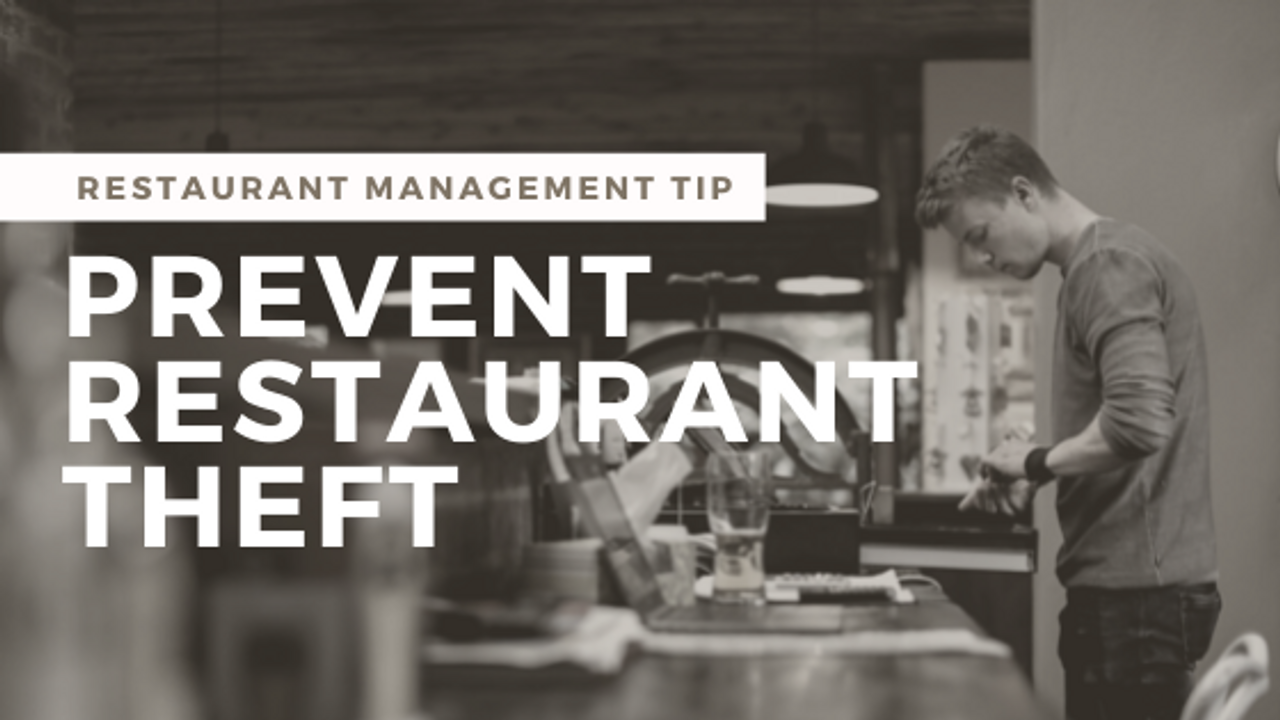Are Your Restaurant Employees Stealing from You

Are your restaurant employees stealing from you? I hate to be the bearer of bad news, but the answer is yes. Stay with me to learn how you’re leaving yourself vulnerable to employee theft and what you can do about it.
This tip is not about how awful restaurant employees are and how they steal from you. In fact, I feel the absolute opposite of that sentiment. I believe your employees want to do a good job and most don't understand that they are stealing if they are. The idea is not to catch them and fire them. Instead, it’s your job to teach everyone what theft is, put the right systems in place and teach management how to inspect those systems to ultimately keep honest people honest.
Before we go into this, know that cameras in your restaurant are great for a lot of things, such as violence, but they are not the solution to restaurant employee theft. When somebody steals something, they could flip you the bird right in the camera. What are you going to do? Walk into your restaurant office and watch hours of digital recording time to find the one moment when something was stolen, when you probably don’t even know when it was stolen? It’s not a great use of your time when you take better steps to prevent theft.
Here is a short list of some of the systems and POS reports that you should be looking at daily to keep honest people honest.
It starts with a handful of reports from the POS system.
- Transfer report. If you allow employees to transfer items from one employee to another, from one ticket to another, it’s supposed to be a convenience for your guests. But if a server knows somebody's paying cash, when the customer goes to close out and gives cash instead of a card, and a new customer sits down, the employee can transfer that soda to another ticket. And when they close out this ticket because it was cash, they get $3. Do this behind the bar with beer and more expensive drinks, and they can make a lot of money. It is more limited today because cash transactions are few and far between. But it is a way that an employee can make more money. But if you pay attention to the transfer report and see that somebody is routinely doing this, you can nail them for theft.
- No-sale report. I'd rather have the no-sale key completely taken from the register. There's a reason why the no-sale warning is the full size of the monitor: it reeks of stealing. There are common uses for a no-sale key, but they’re just excuses for using it to open the drawer and not track the activity. Consider this scenario: a bartender rings up a customer, but the customer gives them cash, not a card. The bartender can turn around, hit no sale, take the cash to void the whole transaction, give the customer the right change and then keep track of how much cash they’re going home with later that day. I’ve seen a variety of ways to keep track of the extra money, from toothpicks, cherry stems, paperclips and rubber bands, each with a dollar value. Nowadays they have phones where they can keep notes. Look at that no-sale report and look for overuse of it.
- Comp report. If you're allowing your bartenders to actually comp customers, or even managers, set rules and keep track of it in the comp report.
- Void report. Why are restaurant employees voiding products? How often does it happen? You may have a manager who steals because they can make cash tickets disappear and pocket the money. Paying attention to those reports and telling everybody, you pay attention to those reports on a shift-by-shift basis, people won't do those things.
And last but not least is a very simple system I put behind the bar and in the kitchen called the Key Item Tracker. You count five to 15 items every day for every shift. Track what you started with, how many you prepped or purchased, what you could have sold, what you actually sold from the POS system and verify the count. Check what is left on the shelves and what the math says it should be. If there's a variance, you could have somebody stealing from you if it's not on the waste sheet (another system that’s great for affecting food cost, stealing and waste).
By consistently reviewing and monitoring these systems and POS reports every shift, you'll be able to trust and verify that your team is not stealing. It’s not that you have bad employees. It's that you don't have a company culture where you set things up so that people understand what theft is, and more importantly, they know you’re looking, which means you keep honest people honest.
If you would like to learn how to own a restaurant that doesn't depend on you being in it to be successful, sign up for my free video course that teaches you three key principles to running a successful restaurant. If you're ready right now to make some serious changes in your restaurant, you can also book a 60-minute call with me where we talk about your challenges and figure out exactly what is holding you back from having a restaurant that doesn’t depend on you being in it to be successful.
Be sure to visit my YouTube channel for more helpful restaurant management video tips.




